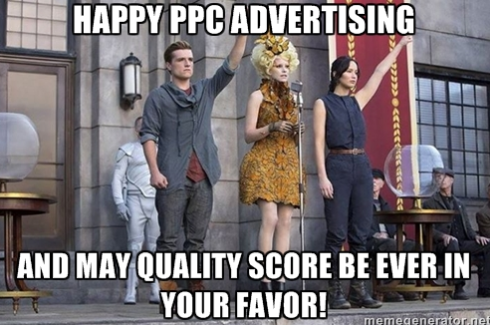
Earlier this week, Google published a whitepaper, “Settling the Quality Score,” and updated the famous 5-year old Hal Varian-AdWords Quality Score video. When I asked them, “Why now?” they said it was just time to update the old information.
While the new content is mostly a re-hash of old stuff, they do disclose a few new insights about Quality Score which I’ll go over in my article today.
1. Google Is Trying to Downplay the Importance of Quality Score
“Quality Score is a helpful diagnostic tool, not a key performance indicator,” they say. “Your Quality Score is like a warning light in a car’s engine that shows how healthy your ads and keywords are. It’s not meant to be a detailed metric that should be the focus of account management.”
But wait just a second. In Google’s own 2011 video, “What is AdWords Quality Score and Why Does It Matter?,” Quality Score sounds an awful lot more important than a blinking engine light.
Quality Score is important in order for your ads to be successful, however, QS also plays a key role in determining your ad’s position and how much you’ll pay for a click. In general, the more relevant your ad, the higher your QS – and the higher your QS, the better your position and the less you will have to pay for a click…Being successful with AdWords means getting your products or services in front of the people who are most likely to become your customers and a high Quality Score can help make that happen.
Hmm, that sure sounds important to me. We know that Quality Score plays a direct role in determining ad position, impression share, and CPC, which in turn greatly impacts the quantity and price of your conversions.
If anything, we’ve seen the significance of Quality Score increase as the average Quality Score has drifted lower over the years – the CPC savings associated with above-average Quality Score keywords is now worth up to 200 percent more than it was four years ago.
So, Quality Score isn’t a KPI? Sorry, Google – not buying it!
2. Mobile Optimization & Device Targeting Influence QS
In their Quality Score whitepaper, Google makes it clear that mobile optimization and device targeting influence QS:
The User’s Device: Does Matter
The user’s device (laptop, tablet, smartphone, or whatever) is taken into account when ad quality is calculated.
Bottom line: Mobile ads have lower average expected CTRs than their desktop counterparts. But Google takes that into consideration when calculating the Quality Score of your keywords/ads.
3. The Performance of Related Keywords DOES Matter for Newly Launched Keywords
I had noticed recently that even keywords with little or no clicks or impression data have assigned Quality Scores. In accounts with overall good to great performance, these scores assigned to new keywords were also high – not so with lower performing accounts. However, Google had never confirmed that related keywords, existing landing pages, or ads influenced other keywords in your account.
Now they have:
Instead of measuring new keywords from scratch, we start with info about related ads and landing pages you already have. If your related keywords, ads and landing pages are in good shape, we’ll probably continue to have a high opinion of them. Always invest in growing your coverage on relevant searches, especially in areas where your ads have the potential to be high quality.
Bottom line: You need to bring your overall account health and performance up to give your new keywords a chance. Or, alternatively, you should consider deleting the junk keywords in your account that are dragging everything else down.
4. The Impact of Ad Formats on Ad Rank Matters – But Probably Not as Much as Google Says
In the new Insights on the AdWords Auction video released this week, Google’s chief economist Hal Varian sheds light on the weight of QS in the Ad Rank algorithm, by way of a deep dive into the impact of Ad Format.
In his sample comparison of four advertisers to demonstrate how Ad Rank is calculated, Varian uses only Low, Medium, High, and None for Quality Score and Ad Format impact in lieu of actual numbers.
However, using some basic algebra, you can solve for the different variables and essentially reverse engineer the weighting of the new Ad Format Impact.
Varian’s calculations in the video imply that Ad Format is – by far – the most influential factor in calculating Ad Rank.
However…
Between minutes five and six of the video, we notice that there are all sorts of discrepancies and errors in the sample calculations. His Ad Ranks don’t balance when you normalize the bids. You can see more in-depth calculations here, but this is an example of what we found:

Bottom line: The use of Ad Extensions improves the new “Ad Format Impact” variable in the AdRank calculation, but probably isn’t as influential or heavily weighted as Google suggests in the video.
Settling the Quality Score? Not Really…
Google’s version of a complete and total explanation leaves more questions than answers. Marketers should read the whitepaper, but don’t settle for the corporate line alone. Like organic search, Google wants to protect the algorithms they use in AdWords, to prevent gaming of the system. There’s always that balance between protecting what black hats will exploit and providing enough information for advertisers to effectively use the platform.
The truth is out there…but in here? Yes, but not entirely.

